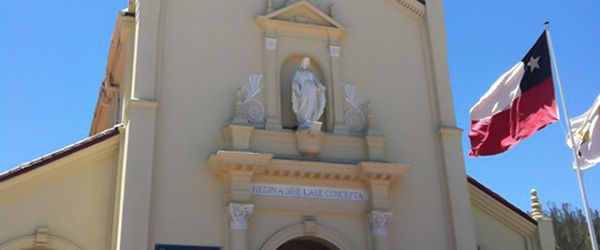Program pairs ‘preachers’ with ‘teachers’ to aid immigrant priests’ English pronunciation.
The group of nuns and priests sitting around the conference table had been invited to a historic event: an orientation meeting for the “Teachers and Preachers Learning Together” pilot program providing one-on-one elocution help for immigrant priests serving in the archdiocese.
“Congratulations, you are pioneers,” said Louis Velasquez, special projects coordinator for the archdiocese’s Vicar for Clergy’s office, during the Jan. 12 “TAP” meeting held at the Archdiocesan Catholic Center in Los Angeles.
Addressing the group of non-native “preachers” and women religious retired/semi-retired “teachers,” Velasquez noted that the archdiocesan TAP program, which may be the first of its kind in the U.S., grew out of a need to help immigrant priests improve their English pronunciation for American congregations. A total of 18 priests and 18 women religious will participate in TAP’s first session.
“Two years ago, the U.S. bishops said that the issue of pronunciation is the most important pastoral issue dealing with international priests,” said Velasquez.
He pointed out to the priests that, while taking English classes offers generic language instruction, the TAP program “is directly related to your ministry” as each “preacher” meets with his “teacher” for a weekly one-hour session to improve pronunciation during Mass.
Participating priests will email their written homilies no later than Wednesday to their TAP teacher, who will correct for grammatical errors in advance of their in-person or online “Skype” meeting to polish pronunciation.
“The sisters are the best possible teachers,” Velasquez said. “There is not a better ideal, a better combination that we could have come up with.”
Notre Dame Sister Anncarla Costello, former archdiocesan vicar for women religious who developed a conversational English program several years ago for immigrant sisters, “Religious In Partnership Providing Language Education,” said those efforts led to thinking about how to support immigrant priests.
“One of the things we thought we could do was help with American accent acquisition,” said Sister Costello.
“What we would like to be able to do through this program,” she continued, “is simply to assist so that you [priests] are going to have some good experiences in terms of serving the people of God --- and the people of God, in turn, will be able to express even more gratitude to you for the gift of your priesthood to us.”
“I want to thank you for your willingness to participate in this pilot program,” said Dominican Sister Cecilia Canales, archdiocesan vicar for women religious. “We thought that this would be a way that women religious would be able to be a support to the priests of the archdiocese and that the priests would be able to benefit from the wonderful education background of the sisters.”
“Sister Jean Morningstar really helps me a lot,” said Father German Sanchez, a native Colombian and trilingual (Spanish/French/English) homilist at St. Sebastian Church in L.A., who has had a weekly one-hour Thursday “Skype” session for nearly a year with the Holy Names of Jesus and Mary Sister to improve his English pronunciation. “I’m very happy for myself and my congregation because I know that the people appreciate that now they understand me more and more.”
Uganda native Father John Bosco Musinguzi, associate pastor at Holy Family Church in Glendale, welcomes the help in American accent acquisition.
“In Uganda, we were colonized by the British, so I knew English, but the American accent is different,” said Father Musinguzi. “It’s my first experience working one-on-one with a religious, but I look forward to it.”
{gallery width=100 height=100}gallery/2012/0127/tap/{/gallery}

